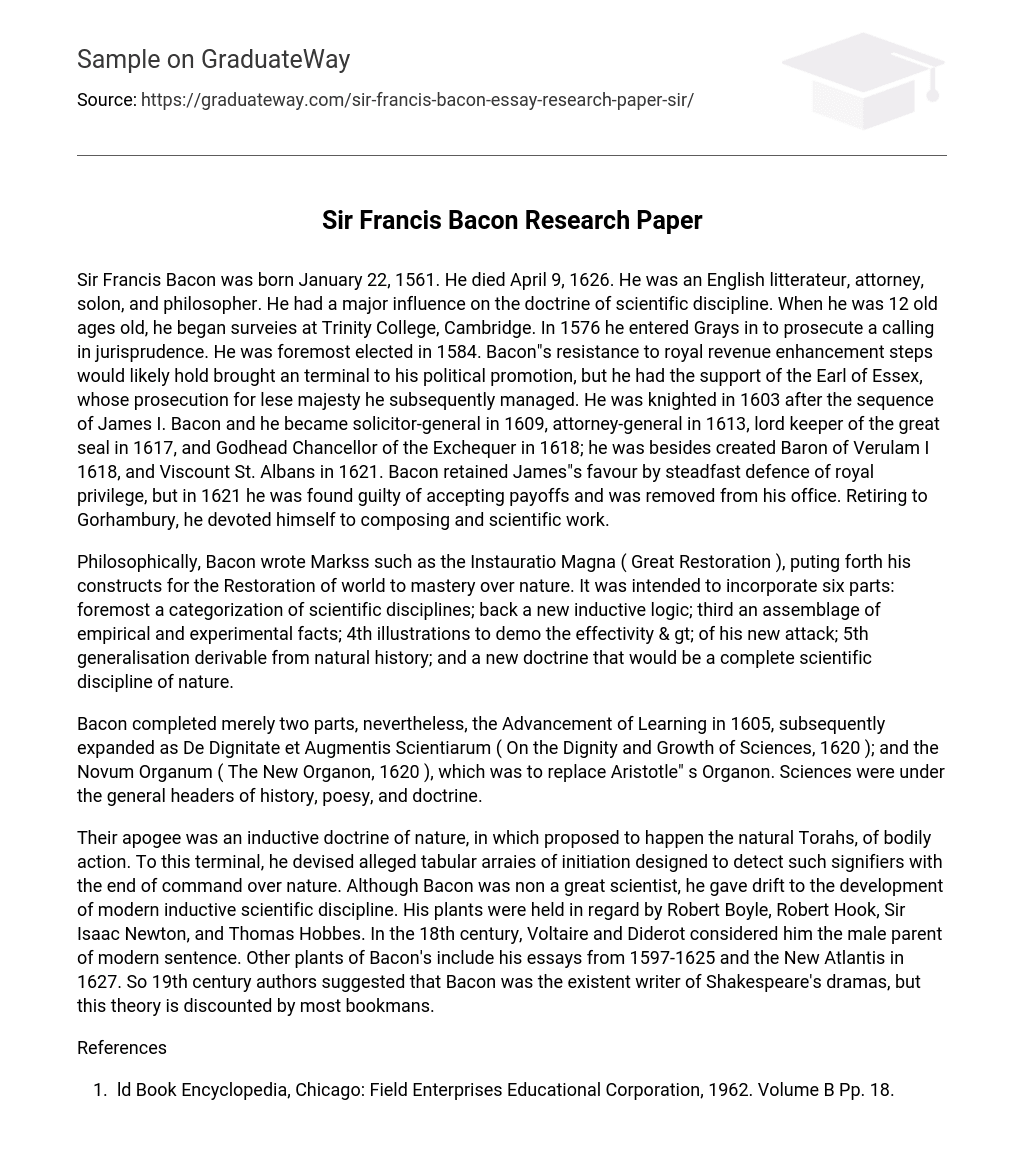Sir Francis Bacon was born January 22, 1561. He died April 9, 1626. He was an English litterateur, attorney, solon, and philosopher. He had a major influence on the doctrine of scientific discipline. When he was 12 old ages old, he began surveies at Trinity College, Cambridge. In 1576 he entered Grays in to prosecute a calling in jurisprudence. He was foremost elected in 1584. Bacon”s resistance to royal revenue enhancement steps would likely hold brought an terminal to his political promotion, but he had the support of the Earl of Essex, whose prosecution for lese majesty he subsequently managed. He was knighted in 1603 after the sequence of James I. Bacon and he became solicitor-general in 1609, attorney-general in 1613, lord keeper of the great seal in 1617, and Godhead Chancellor of the Exchequer in 1618; he was besides created Baron of Verulam I 1618, and Viscount St. Albans in 1621. Bacon retained James”s favour by steadfast defence of royal privilege, but in 1621 he was found guilty of accepting payoffs and was removed from his office. Retiring to Gorhambury, he devoted himself to composing and scientific work.
Philosophically, Bacon wrote Markss such as the Instauratio Magna ( Great Restoration ), puting forth his constructs for the Restoration of world to mastery over nature. It was intended to incorporate six parts: foremost a categorization of scientific disciplines; back a new inductive logic; third an assemblage of empirical and experimental facts; 4th illustrations to demo the effectivity & gt; of his new attack; 5th generalisation derivable from natural history; and a new doctrine that would be a complete scientific discipline of nature.
Bacon completed merely two parts, nevertheless, the Advancement of Learning in 1605, subsequently expanded as De Dignitate et Augmentis Scientiarum ( On the Dignity and Growth of Sciences, 1620 ); and the Novum Organum ( The New Organon, 1620 ), which was to replace Aristotle” s Organon. Sciences were under the general headers of history, poesy, and doctrine.
Their apogee was an inductive doctrine of nature, in which proposed to happen the natural Torahs, of bodily action. To this terminal, he devised alleged tabular arraies of initiation designed to detect such signifiers with the end of command over nature. Although Bacon was non a great scientist, he gave drift to the development of modern inductive scientific discipline. His plants were held in regard by Robert Boyle, Robert Hook, Sir Isaac Newton, and Thomas Hobbes. In the 18th century, Voltaire and Diderot considered him the male parent of modern sentence. Other plants of Bacon’s include his essays from 1597-1625 and the New Atlantis in 1627. So 19th century authors suggested that Bacon was the existent writer of Shakespeare’s dramas, but this theory is discounted by most bookmans.
References
- ld Book Encyclopedia, Chicago: Field Enterprises Educational Corporation, 1962. Volume B Pp. 18.
- Wegman, Richard J., Medical and Health Encyclopedia, New York: Ferguson Publishing Company, 1992, Pp. 491-492.





